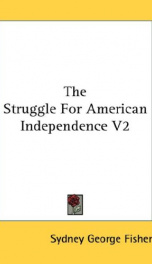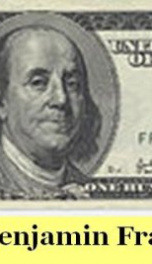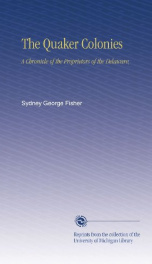the struggle for american independence

Purchase of this book includes free trial access to www.million-books.com where you can read more than a million books for free. This is an OCR edition with typos. Excerpt from book: II. EFFECT OF THE REFORMATION AND THE RIGHTS OF MAN Besides the semi-independent character of their political governments, there were other circumstances which tended to inspire a large part of the colonists with a strong passion for independence, and led them to resist with unusual energy the remodelling plans which England began in 1764. Some of these characteristics were eloquently described by Burke in one of his famous speeches in Parliament. The Americans, he said, were not only Protestants, but protestants against Protestantism itself. They were dissenters from the Church of England; they were Puritans, Congregationalists, Presbyterians, Baptists, Quakers, whose ancestors had been persecuted in England and had fled to America from that persecution. They hated the English Church and the English Government. They had lost all that peculiar English reverence and deference for the church and the crown. In their religious beliefs and practices, they had advanced beyond all other Protestants in the liberty of the Reformation. They had rejected so many dogmas and sacraments that they were more free in their religion than most of the people of Europe. They had trained and accustomed themselves to the freest and most subtle debate of all religious questions, regardless of priests, councils, or creeds; and they had encouraged this individualism until even the women thought for themselves, and it was said that every one's hat was his church. Such simple church organization as they had was democratic like that of the Congregationalists or republican like that of the Presbyterians. The people elected their own religious leaders, calling them ministers, pastors, elders or teachers, and dismissed them when their preaching ceased to please the majority. This religious liberty n...
Info about the book
Author:
Series:
Unknown
ISBN:
0548127891
Rating:
3/5 (4)Your rating:
0/5
Languge:
English
Users who have this book
Users who want this book
What readers are saying
What do you think? Write your own comment on this book!
write a commentif you like the struggle for american independence try:
Do you want to read a book that interests you? It’s EASY!
Create an account and send a request for reading to other users on the Webpage of the book!





